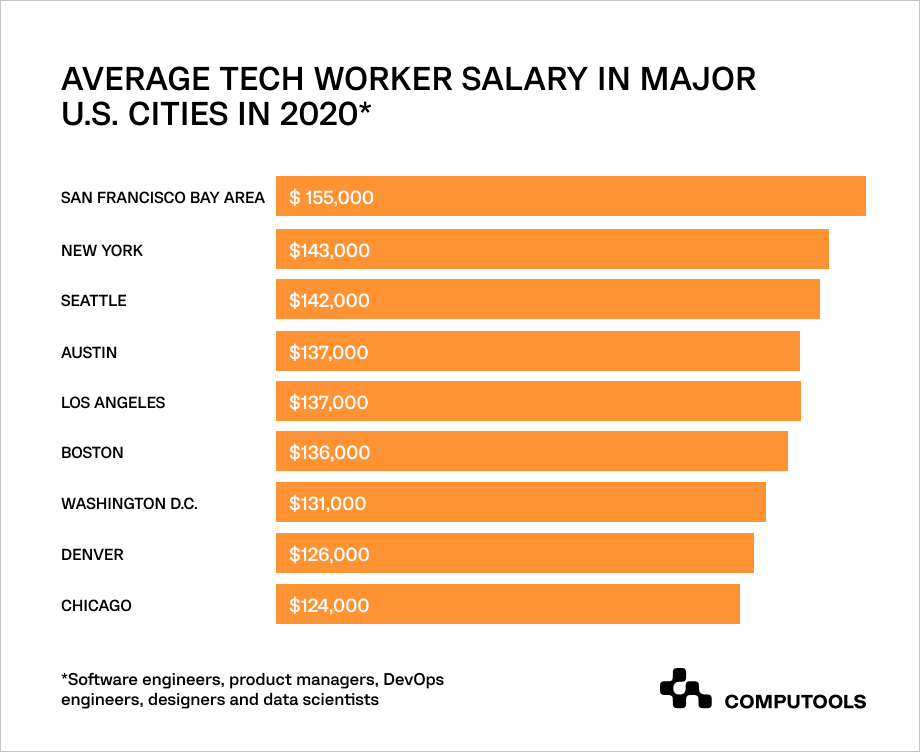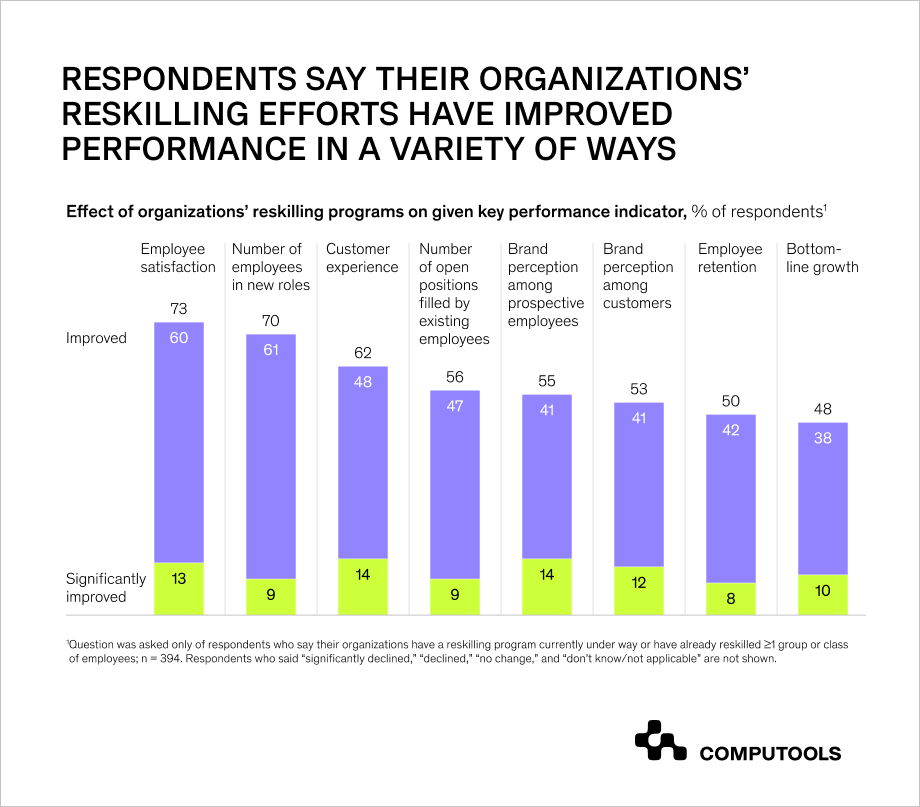The Software Developer Shortage and Why It’s a Global Problem
The need for the new skills is rising
Certain factors are contributing to the software developer shortage. They include the rapid development of technology and trends, as well as the increasing demands on the diversity of necessary technical skills a given candidate should possess.
Today, many industries are moving into the digital space and adapting to the rapidly changing business environment. We can highlight several business sectors in which company executives see a big gap between the number of positions and the number of actual experts available:

The gap between demand and offer is getting bigger
The coronavirus pandemic and the global crisis caused by it are pushing businesses online. This, in turn, is leading to the rapid development of technology and the introduction of things like RPA for business, AI, and ML. However, technology is becoming more complex, and there are still few people who can manage it. Thus, the gap (the demand for software engineers) with hard technical skills is growing.
There’s an apparent mismatch between employer expectations and the reality of specialists’ skills, which is why IT professionals are among the top hardest-to-employ specialists.
Wages are growing without signs of slow down
The shortage of software engineers provokes an increase in labor compensation. Forbes’s article on IT salaries in the U.S. for 2020 shows:

However, not all employers are willing to pay that much. To avoid the high costs that the job market for software engineers offers, companies are distributing responsibilities among existing staff, which reports are showing leads to burnout and a lack of job satisfaction.
An increase in poorly trained IT specialists is on the rise
Another reason for the tech talent shortage is that candidates are often self-taught, without a college or university background from a technical school. Meanwhile, most employers are looking for profiles that have specialized education. Even though technology has become essential in our daily lives, there’s still a massive shortage of elementary, intermediate, middle, and high schools that offer structured computer-based classes/courses (if any at all).
When you take a look at the average, top-performing software engineer, you’ll find that computer technology experience grounded in the early years of school is a common background.
Click here for a digital solution to your organization’s pain points and bottlenecks!
Contact us →Sourcing candidates the traditional way
A major reason why most IT job vacancies go unfilled is that recruiters are approaching the process in a way that doesn’t apply to how most software engineers think when it comes to job search.
It’s worth noting that programmers, and especially qualified and experienced ones, don’t seek employment in traditional places like job boards online or offline. In most cases, they might not even be looking for their next job because they have multiple offers already lined up for when they get bored and want something new.
The reality is, the best specialists are found with a direct approach and kept by high salaries, great benefits packages, personal connections within a particular organization, opportunities for travel, or a company culture that really resonates with the specialist.
Risks: The Shortage of IT Professionals
Back in 2018, Gartner predicted that talent shortage would be at the forefront of the IT industry’s challenges:

The situation is grim for most. The talent shortage may be more dangerous than the risks associated with security or the high costs of launching a new project.
Compared to 2020, the software developer shortage has grown by 60%, creating a barrier between innovation and new technologies and business success; a major headache for companies.
The shortage of software engineers is not just a lack of people to do the work needed. It’s a trend that could sooner or later lead to a loss of $8.4 trillion in profits for companies around the Globe.
According to Forbes, there are already 40 million jobs around the world that have not been filled by the desired candidate. That number can double in 10 years.
Solution Methods
1. Computer technology education
Other than more tech-based colleges and universities, a deeper technical study of IT in schools should be considered. Technologies have become integral parts of modern life, the exploration and acquisition of technical skills in school could greatly expand the range of people who would later reimburse the demand for software engineers.
2. Hiring outsourced IT development providers
The shortage of programmers leads to vacancies being left open for months. In situations like that, companies have several options from freelance developers to working with IT outsourcing/out-staffing agencies.
3. Providing training programs for team members
The economy is dynamic and people all over the globe find themselves in one of two situations professionally: change their occupation or expand on their knowledge and skills. And when it comes to employers, helping employees grow benefits their organizations in a multitude of ways. One of which is a dramatic decrease in expenses for both the employee and the employer. By offering in-house education, you set the scene for a company culture that supports growth, thus getting a more qualified specialist that stays longer.
A McKinsey & Company study shows how companies that retain staff through in-house training programs increase performance:

4. Providing training programs for new team members
Similiar to the paragraph above, providing new hires with professional in-house training is a great way to enhance culture and make the hiring process more affordable. With an open mind and ability to train new hires, recruiters can target a wider range of specialists and close vacancies faster. The ability to take a Jr. developer and work with them until they’re a Mdl. or Sr. is a great opportunity for both parties.
5. Looking past certain expectations
Finding good technical talent is tough as we’ve already explained. Another method for closing vacancies in the most efficient amount of time is to lower some expectations of the applicant. For example, to overlook the amount of time the specialist has been working, or a minor gap in technology stack knowledge with the understanding that this candidate is going to get trained and learn to fill the vacancy’s requirements over time.
6. Expanding the benefits package
This point certainly depends on the resources and capabilities of the company that’s looking for a specialist. In addition to a high salary, when choosing an employer, good professionals are focused on the additional benefits being offered. This includes but isn’t limited to full-coverage health insurance, extracurricular activities(sports, corporate parties, travel, etc.), the freedom of decision-making, their own team, a modern office/remote work, paid lunches and transport to and from the office, etc.
Conclusion
From all of the above, it’s clear that the shortage of software engineers in the IT sector is significant and becoming a larger and larger issue. This is due to several reasons, such as the inflated expectations of employers, the lack of experience or qualifications from applicants, salary expectations, old-fashioned methods for recruitment, etc.
However, there are plenty of solutions; those that are short-term solutions, such as finding outsourcing companies, and those that are long-term solutions, such as school-based education and in-house training programs.
Don’t get stuck in the situation where you’re spending time and money on methods that aren’t adequate for the current and coming software developer shortage. Take action and create a strategy that promotes business success.
If you need a qualified developer, email us at info@computools.com.









Computools was selected through an RFP process. They were shortlisted and selected from between 5 other suppliers. Computools has worked thoroughly and timely to solve all security issues and launch as agreed. Their expertise is impressive.